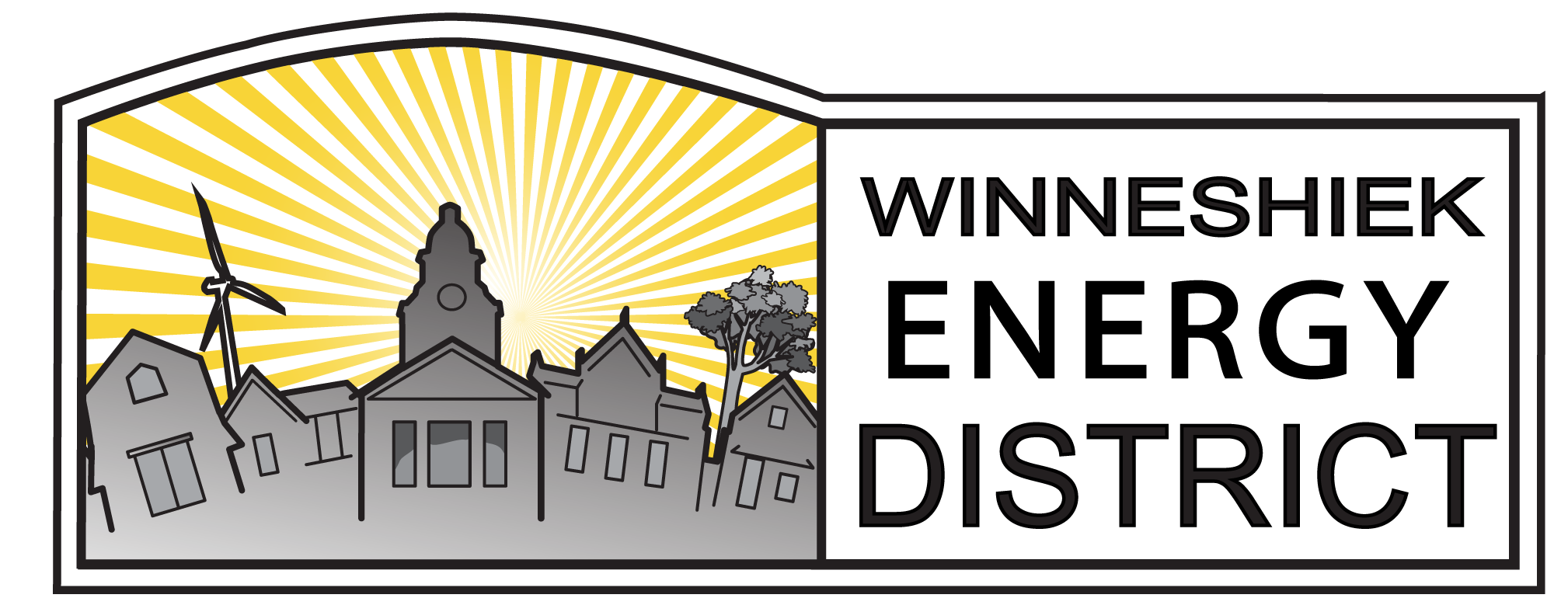In a sea of technical innovation, WED brings cultural innovation to VERGE19
Kristin Eggen, Communications Specialist, Winneshiek Energy District
December 31, 2019
Shippable Solar kits for faraway lands? Snacks from the byproduct of beer-making? Carbon accounting apps? Yes, these all exist and were showcased at the GreenBIZ VERGE19 conference, in addition to dozens of industry experts from around the country. My colleague Joel Zook and I had the privilege to attend VERGE19 in Oakland, CA October 22-24 with support from the Solutions Project to talk about the Winneshiek Energy District’s work as part of the conference’s clean energy equity showcase. The Winneshiek Energy District was one of ten organizations from around the country whose work focuses on clean energy inclusivity. We were perhaps the only representative from a rural area and one of the few from the Midwest.
As you might have guessed, the GreenBiz group convenes companies to exchange ideas around greening the business sector and based in the bay area, innovation was a key focus. The conference focused on sectors such as transportation, the circular economy, clean energy, and carbon. I attended sessions on battery technology, smart grid design, equity, and how to redesign plumbing to make it more energy-efficient.
The more conversations I had with entrepreneurs, field experts, and chief sustainability the more it became clear: Unlike many representatives at the conference, the Winneshiek Energy District is not striding toward sustainability through technological innovations- We are creating an institution that is being culturally innovative.
“Culturally Innovative? What does that even mean?” It means that we start with people. We help our neighbors, not just industries. We work on homes for those who cannot afford to be early adopters of energy efficiency measures. We aim to make it normal for people to invest in energy efficiency, clean energy, and local energy ownership. Even simple monthly education events since our founding have helped vocabulary like “blower door test,” “net metering,” and “municipal electric utility” seep into everyday vernacular. We work on local and state policy that opens the door for clean energy ownership to create a larger system to support clean energy work through which our communities can thrive. We change lightbulbs for the elderly. We tell stories from our community about clean energy. We ask community members to support this work financially and over a quarter of our work is supported each year by local donations.
The concept of locally-led solutions to combat national (or global) environmental problems isn’t new. Energy Districts take inspiration from the soil and water conservation district model, where each district covers one county and can offer technical support to the district. This locally-led movement of practical solutions and implementation had a tremendous effect on America’s landscape, and it all started with neighbors helping neighbors make changes in areas where there were opportunities to improve practices. With this model, every county is covered and nobody is left out of the environmental and economic benefits of clean energy prosperity.
Almost ten years after the Winneshiek Energy District was founded, nine more counties in Iowa have formed energy districts. This grassroots institution is being replicated because its mission resonates in communities around the state and around the nation! Technical solutions are only as good as the hands you have to implement them and all the technology in the world won’t do any good if there aren’t leaders to effectively navigate change. Here in Winneshiek and in other energy districts, we are organizing helping hands in the way of technical experts, outreach coordinators, energy policy gurus, and clean energy champions to catalyze the clean energy transition in the place we know best: our home community.
So while business and tech startups continue to prototype the best way to purchase clean energy solutions and imagine new ways of being through new biz startup funds, here at the Energy District we remember that people and community are our biggest asset and so we had better roll up our sleeves, reach out to our neighbors, and create a new way of being that embraces our biggest strength: each other.
